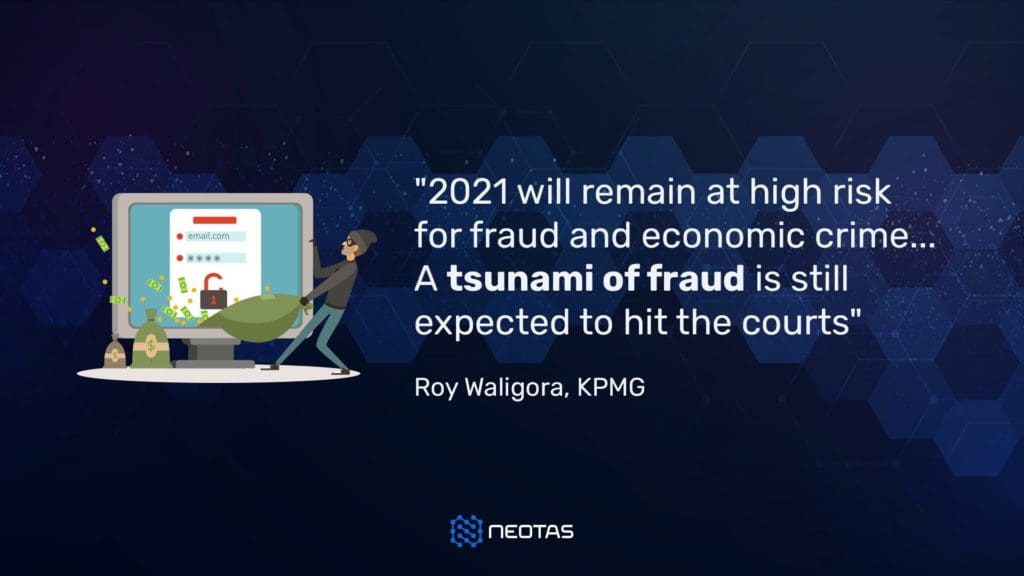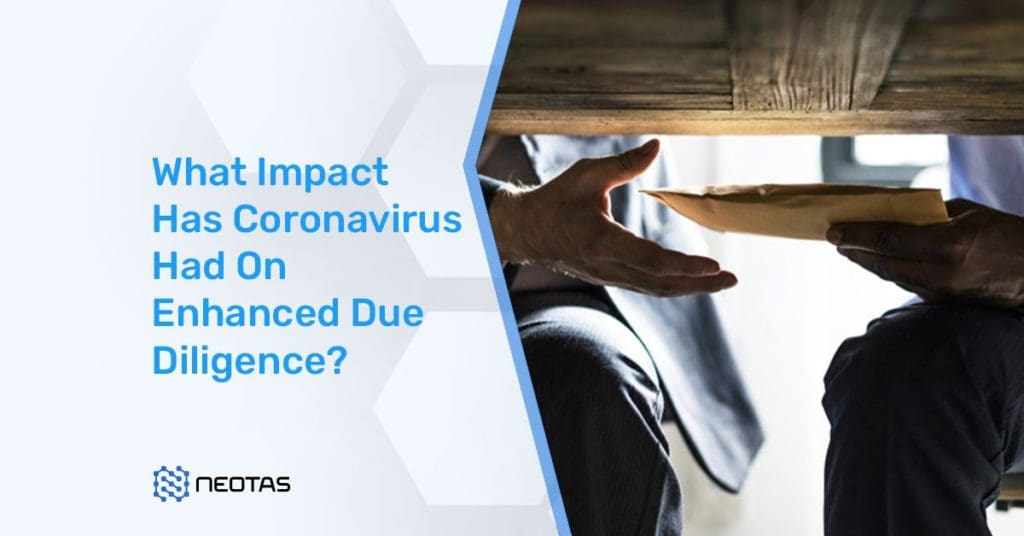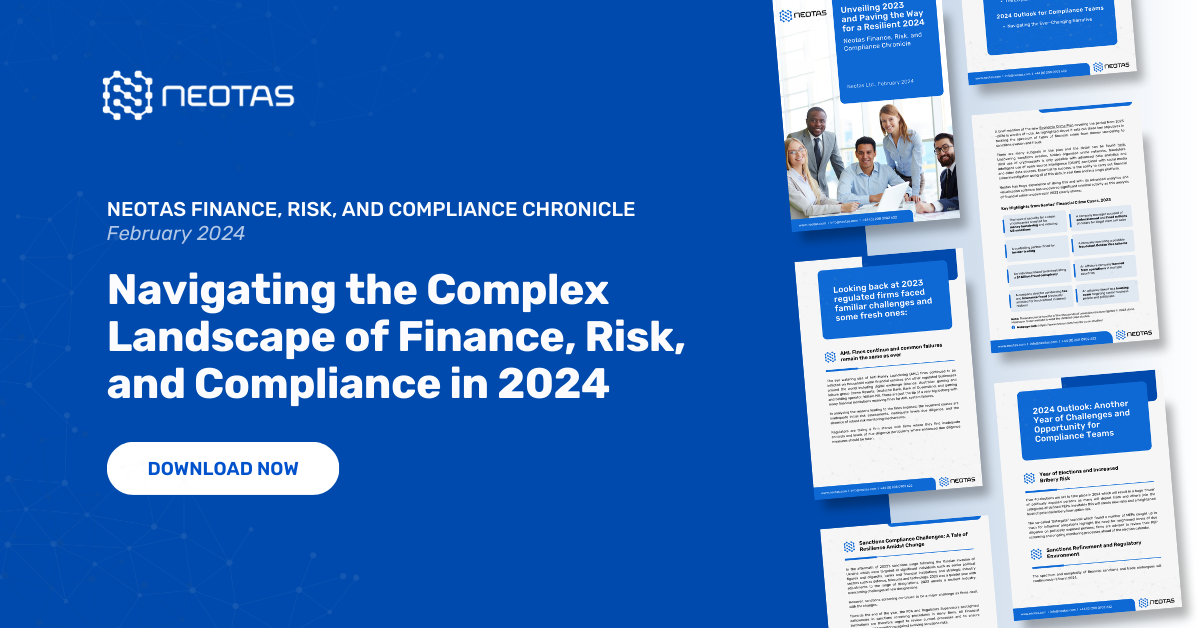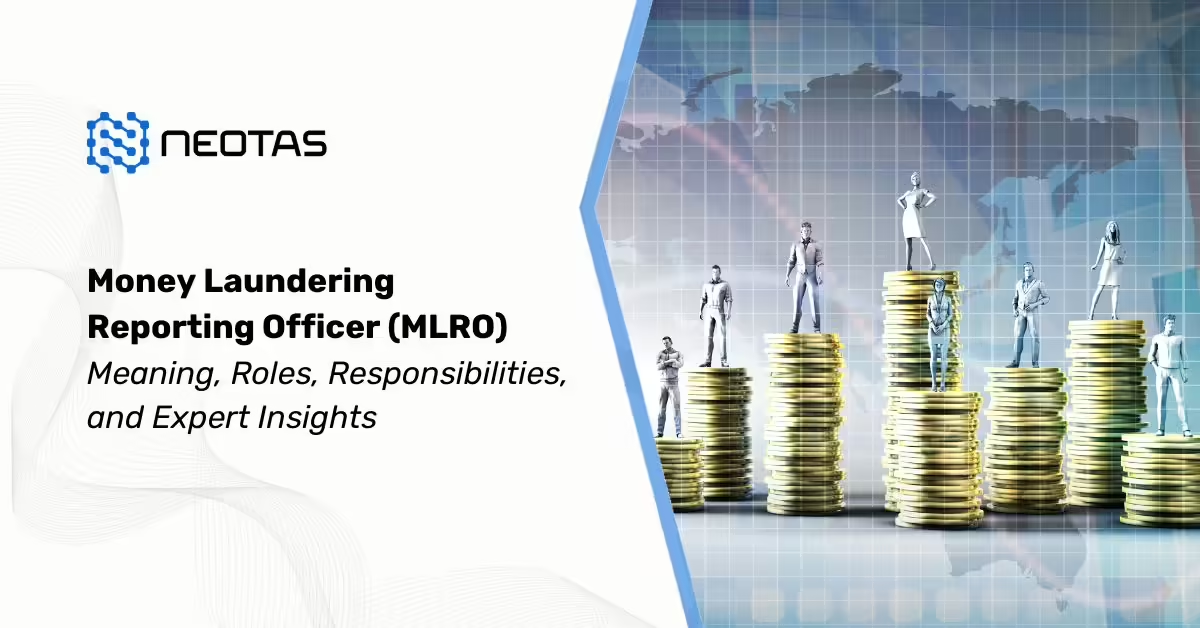COVID-19 Impact Leads To Increased Fraud Risk :
What Impact Has Coronavirus Had On Enhanced Due Diligence?
In what’s been a year like no other, we have seen the significance of the impact of the COVID-19 pandemic on all aspects of the business world.
Many traditional business practices have been completely overhauled as global restrictions introduced huge limitations on travel, face-to-face meetings and office based working.
With uncertainty, comes risk. As organisations have been forced to adapt and evolve with the changing environment, the opportunity for risk becomes even greater.
There’s never been a more crucial time for having the full picture in front of you than right now.
Impact of COVID-19 on Due Diligence
The unprecedented nature of the last year means that it can’t be considered a typical year for most institutions. While some industries may recover quickly, others will face a longer road back to normality. As a result, the impact of “the new normal” on a business may need to be adopted as part of reasonable due diligence processes.
Making matters more tricky is the inability to offer in-person visits or assessments due to social distancing restrictions. With more checks being completed virtually, firms are now considering all of the tools at their disposal to get a full understanding ahead of a deal.
In a recent guide to the changing nature of the due diligence process during COVID, Deloitte shared a number of useful tips to look out for:
- It is important to remember confidentiality issues: Due Diligence processes are sensitive and require confidential data handling
- Engage and access the right people: Information that comes quick and in a good quality is essential
Here, Deloitte highlight the importance of using third party due diligence providers to ensure confidentiality and quality of information. While the landscape keeps changing, cutting corners will only increase the risk of foul play.

Global Uncertainty Sees COVID Fraud Risks Soar
The disruption and uncertainty of a global pandemic is a potential breeding ground for fraudulent activity. The ongoing unpredictability of the situation makes it harder to spot unusual activity as businesses are forced to improvise.
KPMG’s Fraud Barometer signalled that although the overall figure for reported and tried fraud cases dropped in 2020, there is a “tsunami of fraud” on the way for 2021. This all comes as the court systems attempt to catch up with the backlog of cases.
Opportunistic attackers have taken advantage of the uncertainty, particularly of the dedicated coronavirus support on offer to businesses.
In December 2020, figures published showed that over £45m in “bounceback” loans had been granted to businesses by the lenders, underwritten by the UK government. Early conservative estimates suggest at least 1% of these loans were taken out fraudulently. With repayments due to begin from April 2021, the true figure will be revealed soon.
PwC have reported a spike in false positives for financial institutions, as their software learns to deal with the changing circumstances. Even compliance systems with machine learning capabilities are struggling to adjust to what would appear to them to be unusual behaviour. This makes filtering out the real red flags even more difficult.
Organisations are under increasing pressure to make decisions first and ask questions later, as they evolve with the changing landscape. It’s easy for business practices like supplier controls to be bypassed and important due diligence questions missed.
Internal COVID Fraud Risk On the Rise
Over the past year, we have provided thousands of open source background screening checks as part of our enhanced due diligence services. While every case is different, and confidential, we have noticed data trends suggesting activity such as internal fraud is on the rise.
A recent case of operational due diligence uncovered fraudulent activities with two parties trading internally to inflate their books. Our deep web network analysis uncovered links between the companies including shared directors. Trading was taking place in a perceived effort to inflate their books as a way to appeal to potential investors.
With the true financial impact of the pandemic still being felt worldwide, businesses are seemingly turning to illegitimate practices in order to stay viable.
Fraudulent behaviour continues to thrive during COVID with our due diligence data suggesting there are two clear trends:
- Existing fraudsters continue to operate, with opportunistic attackers looking to exploit the current uncertainty
- Traditionally sound companies are being forced to improvise – sometimes resulting in fraudulent behaviour
Post-COVID Risk Management
So how can businesses manage the ongoing increased risks in a post-COVID world?
It’s fair to expect some changes to business practice to be intermediary, while some will be around in the longer term. Ensuring staff are aware of the heightened risk is a start, with clear education about the different opportunities for fraud or non-compliant behaviour.
Adapting risk assessments to reflect “the new normal” and to adopt some of the virtual tools that have likely been introduced is another important step.
But what about detection? What can be done to identify risk?
The key is to ensure businesses are using ALL of the assets that are available to them.
KPMG have highlighted the need to adapt due diligence processes to the changing landscape. They flagged the importance of using publicly available information sources as part of their recently shared Differentiated Diligence document. The report suggests supplementing existing due diligence practices with new technologies to reduce risks. Social media is suggested as one of the key differentiators for effective due diligence post-COVID.
In a world where you can’t meet people face to face, tools that help uncover the history, behaviour and attitudes of the people you’re dealing with become more crucial.
Our enhanced due diligence services combine machine learning, AI and human analysis to eliminate false positives. Using only publicly available data, we’re able to paint a full picture of the “people risk” of any deal.
Arrange a call with our team today to discuss your business’ changing needs due to COVID.



 Financial Crime Compliance Trends 2024
Financial Crime Compliance Trends 2024












